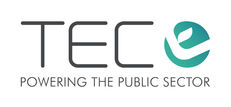Achieving carbon reductions above and beyond the basics!
With ambitious energy reduction targets and sustainability as a key objective of its 2020 Strategy, The London School of Economics and Political Science (LSE) has already undertaken many carbon-saving initiatives and embedded energy efficiency in our estate and operations. But this was not enough! And with very little “low hanging fruit” left to pick, we turned to the Mayor of London’s RE:FIT scheme.
In partnership with energy service company Bouygues, we invested £2.3 million in installing energy conservation measures across the estates. In addition to the traditional photovoltaic and lighting upgrade measures, BMS upgrades and innovative control strategies were developed. This also improved the student and staff working environment. In total, the project is guaranteed to save LSE over 2,800 MWh per year, reducing our carbon footprint by 9% and paying back in 8 years.
The project was completed less than a year ago but it has already surpassed the School’s expectations and was a major contributor to the 17% carbon reduction achieved in 2015-16. Now LSE is working on deploying a second phase of RE:FIT across the estate.
Top 3 learnings:
1 Clear and detailed communication with an opportunity for feedback from building users will maximise disruption and minimise end-user engagement.
2 A holistic approach and flexible strategy allows coordination of other projects and budgets to pick up areas not covered in the RE:FIT scope.
3 Good data obtained at the start of the project is essential to monitor success
CO2t savings 2016/2017: 1,121 tonnes of CO2e (Estimated)
CO2t savings 2017/2018: 1,121 tonnes of CO2e (Estimated)
Videos








 Except where otherwise stated, content on this site is
licensed under a Creative Commons Attribution 3.0 License.
Except where otherwise stated, content on this site is
licensed under a Creative Commons Attribution 3.0 License.
